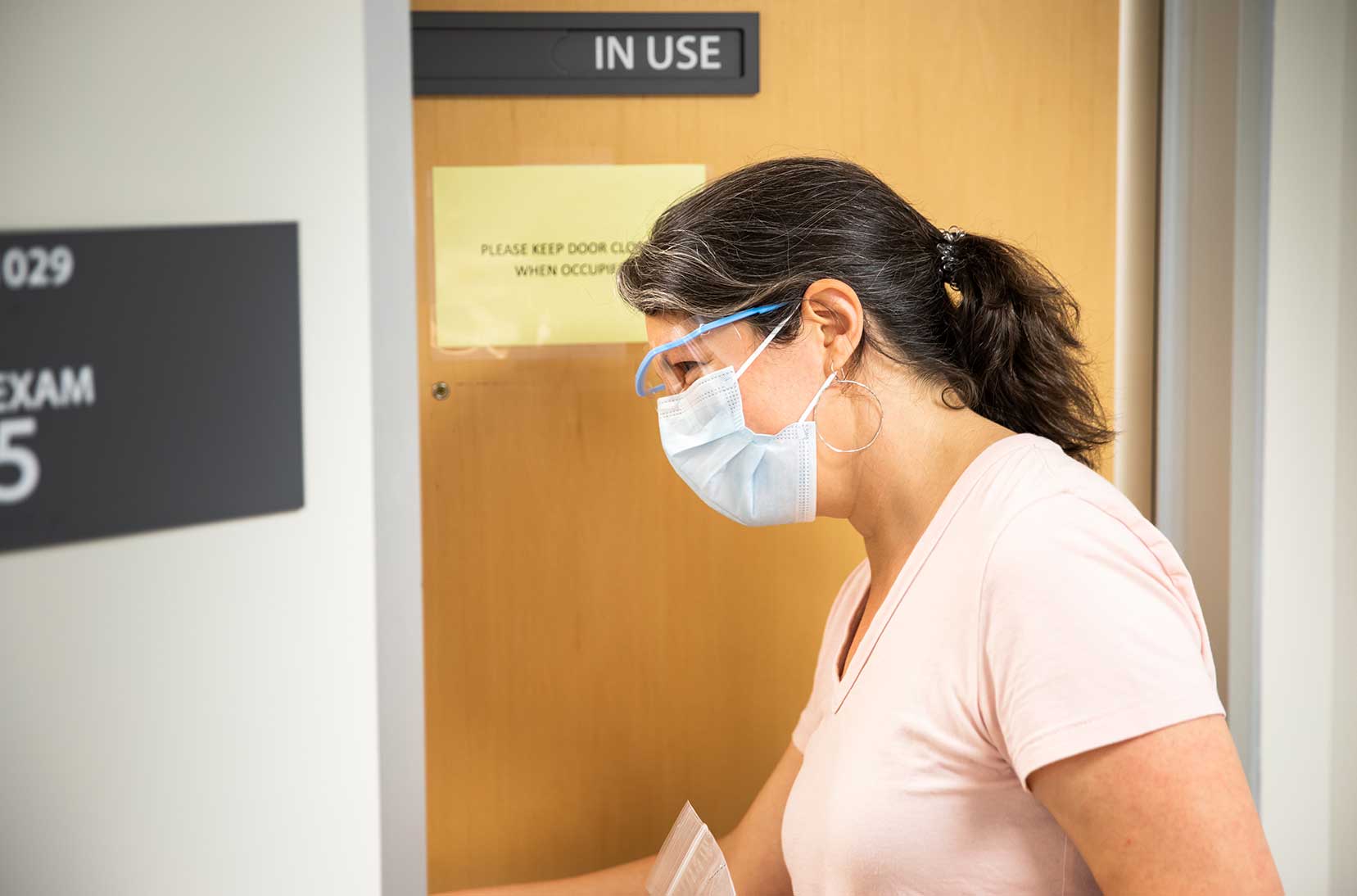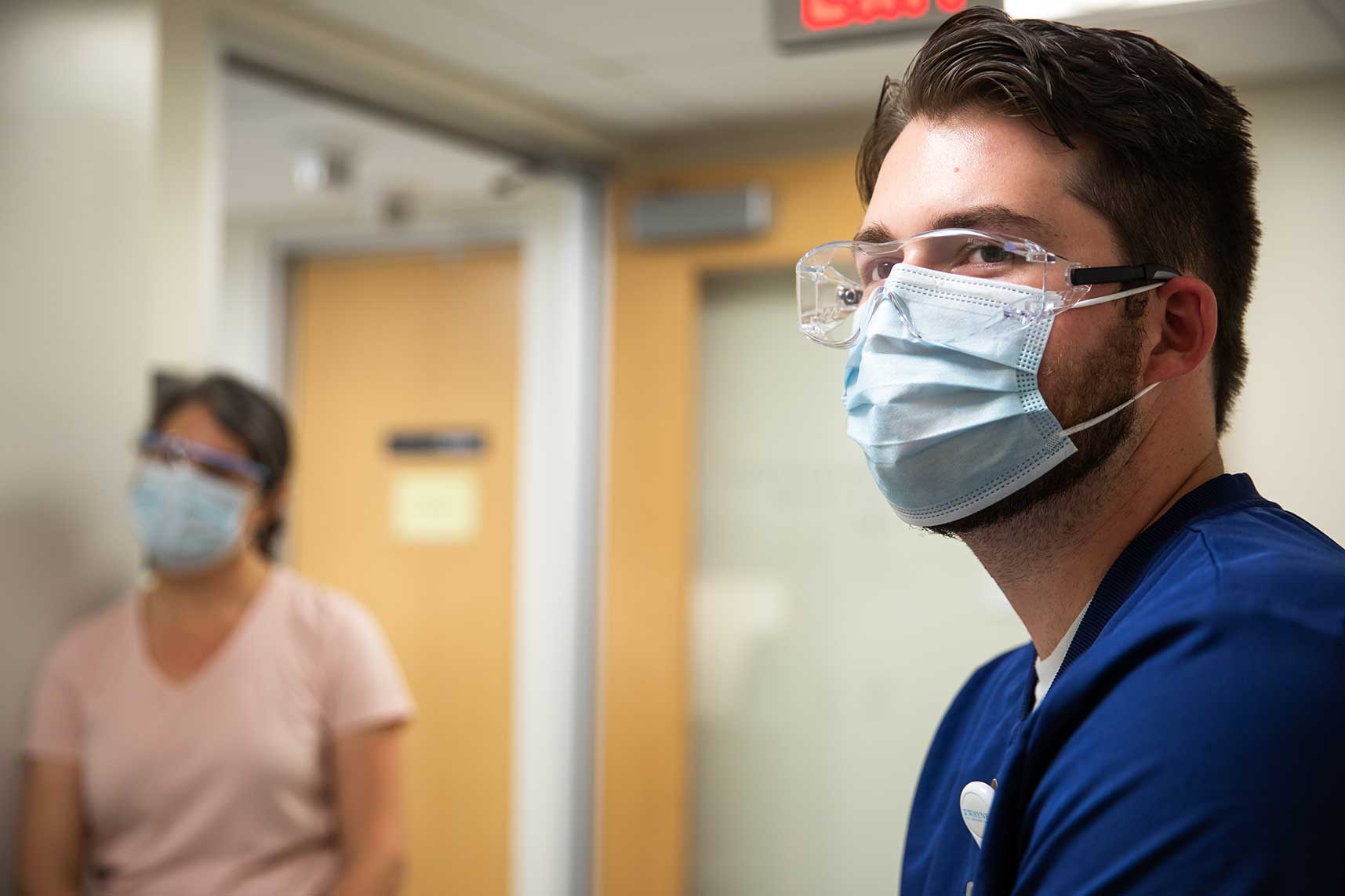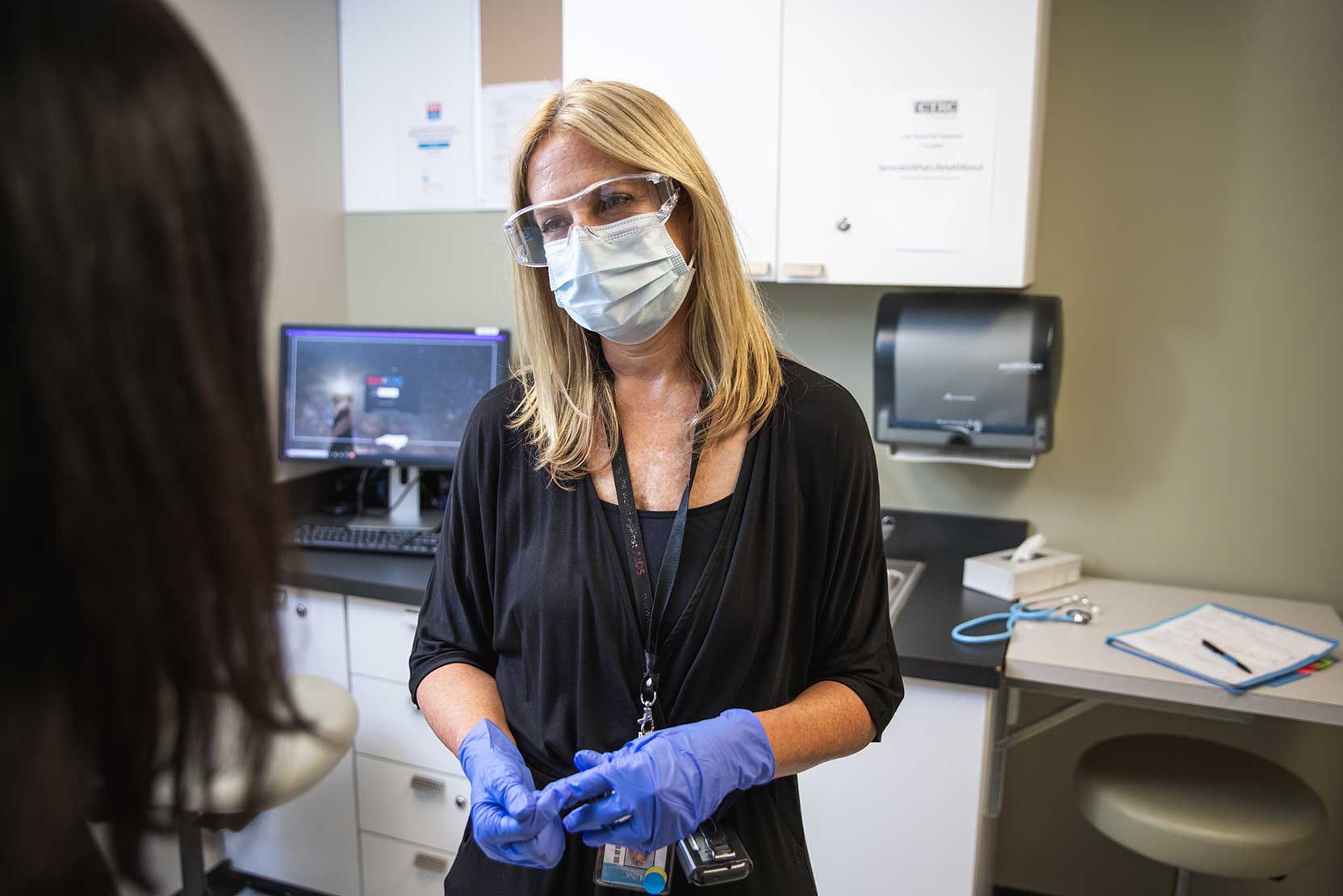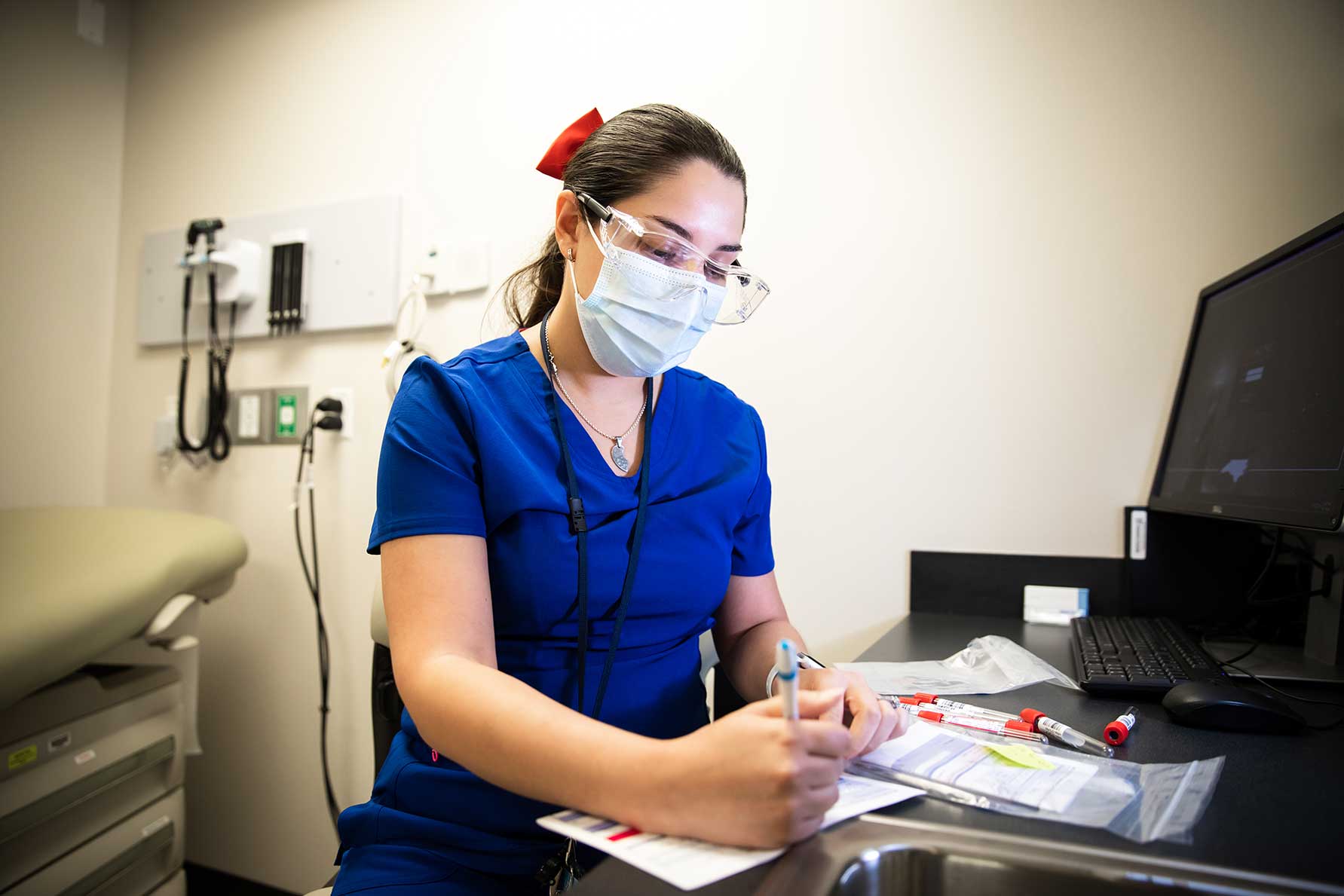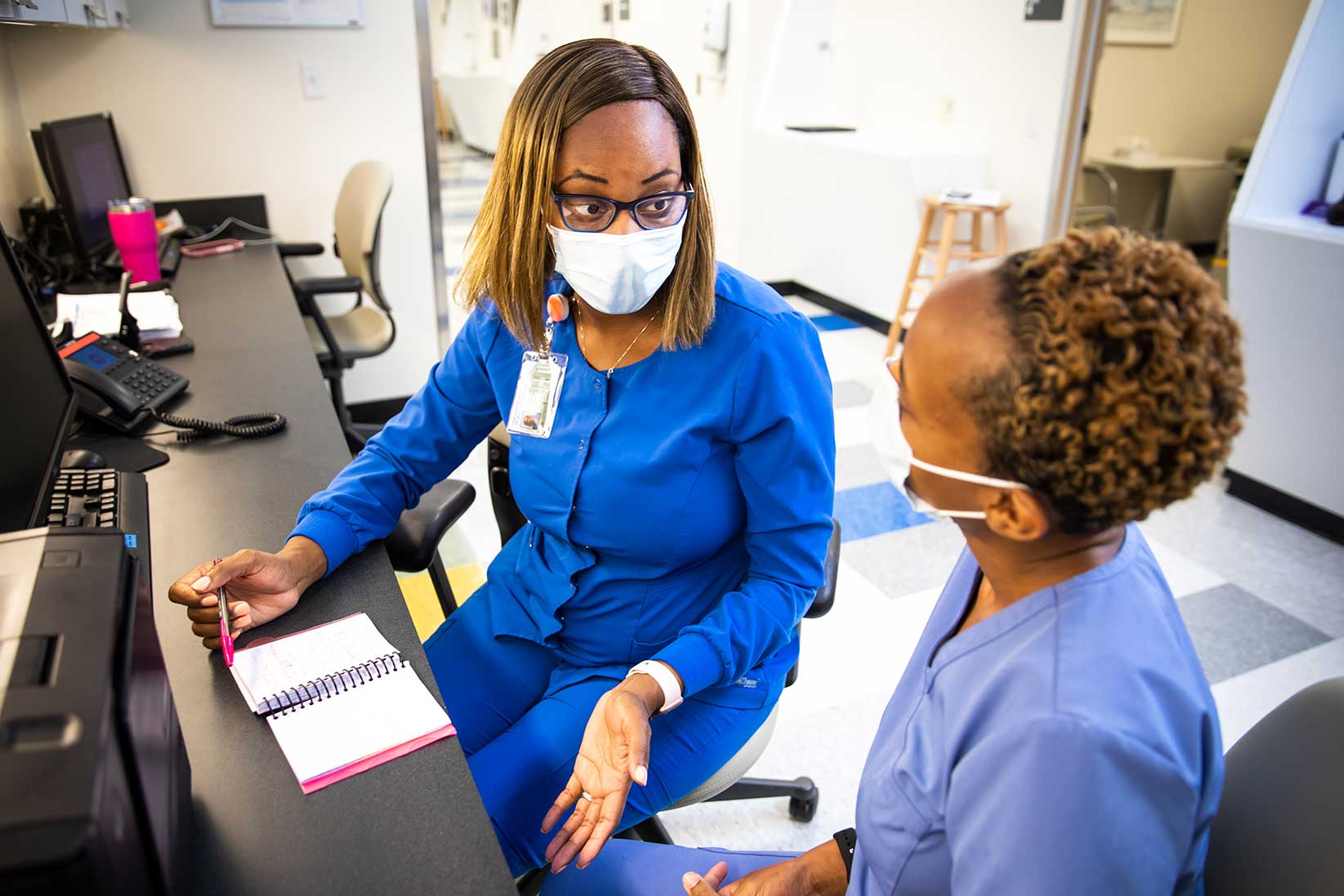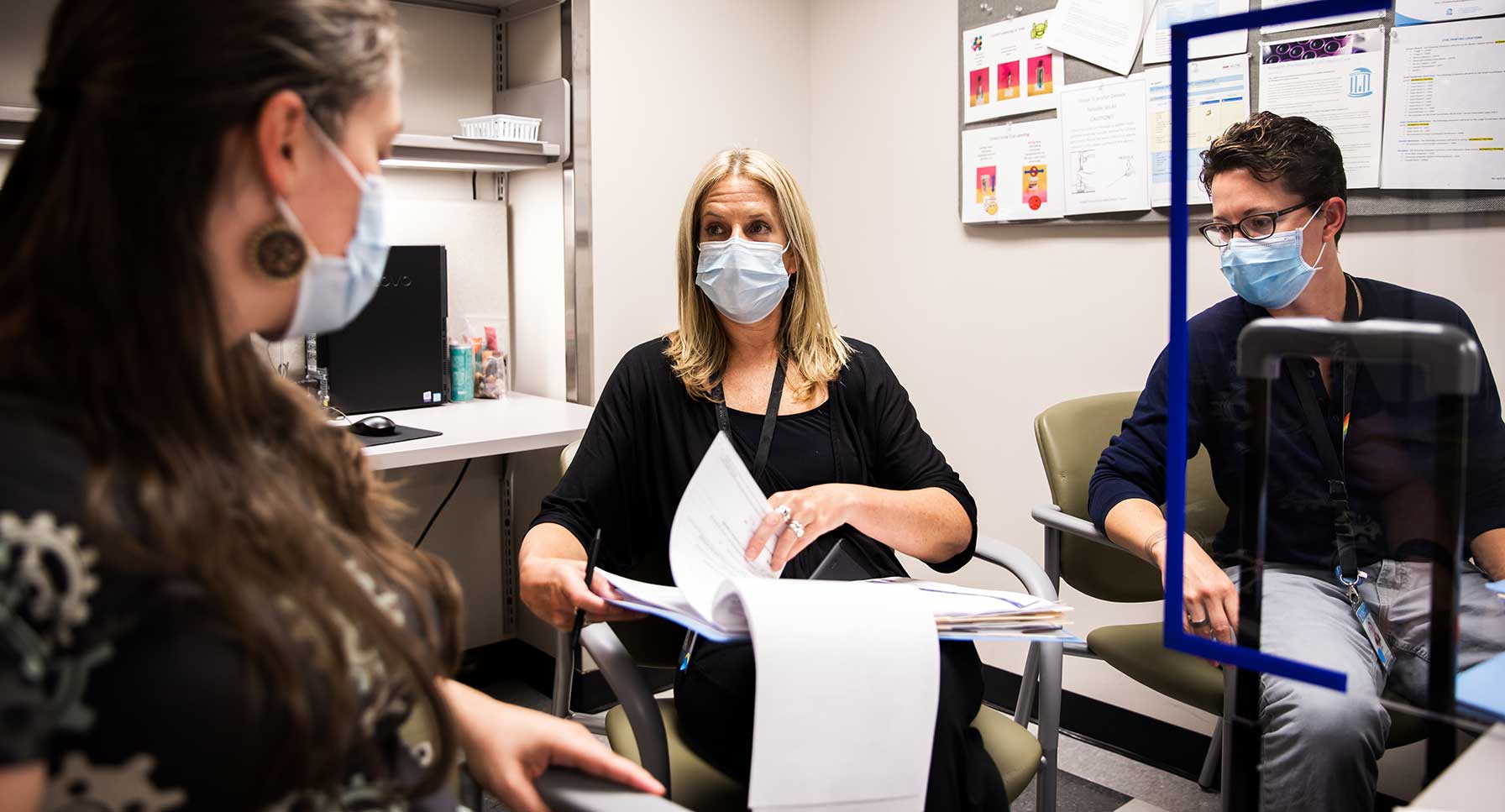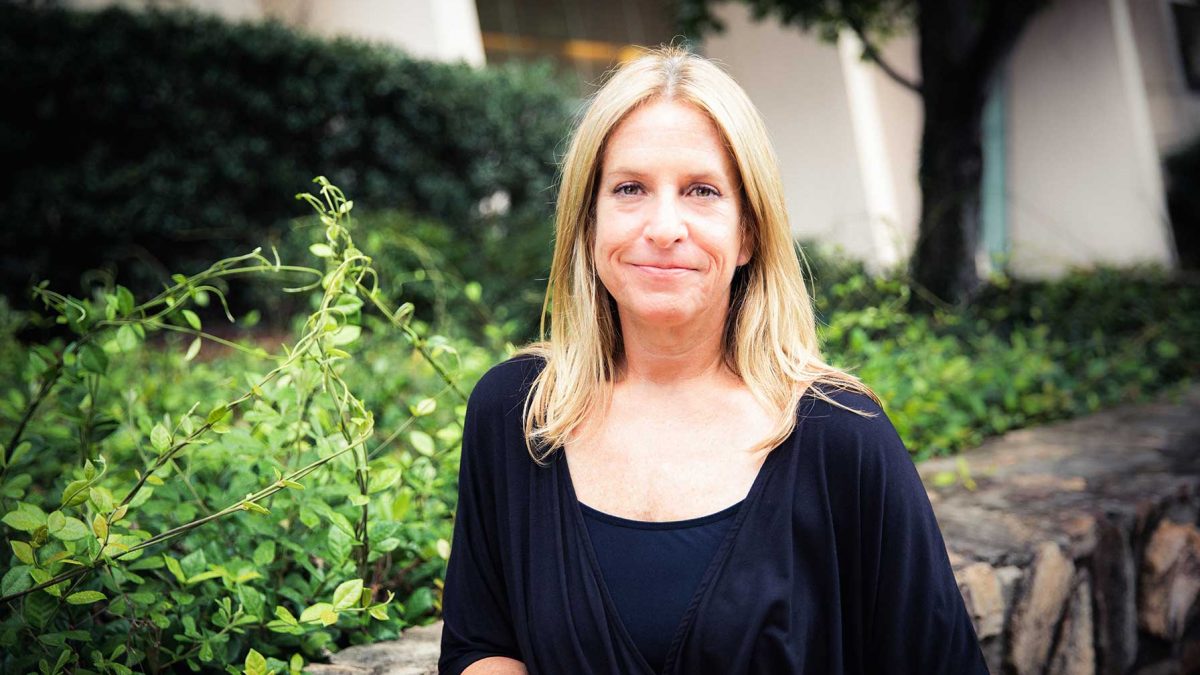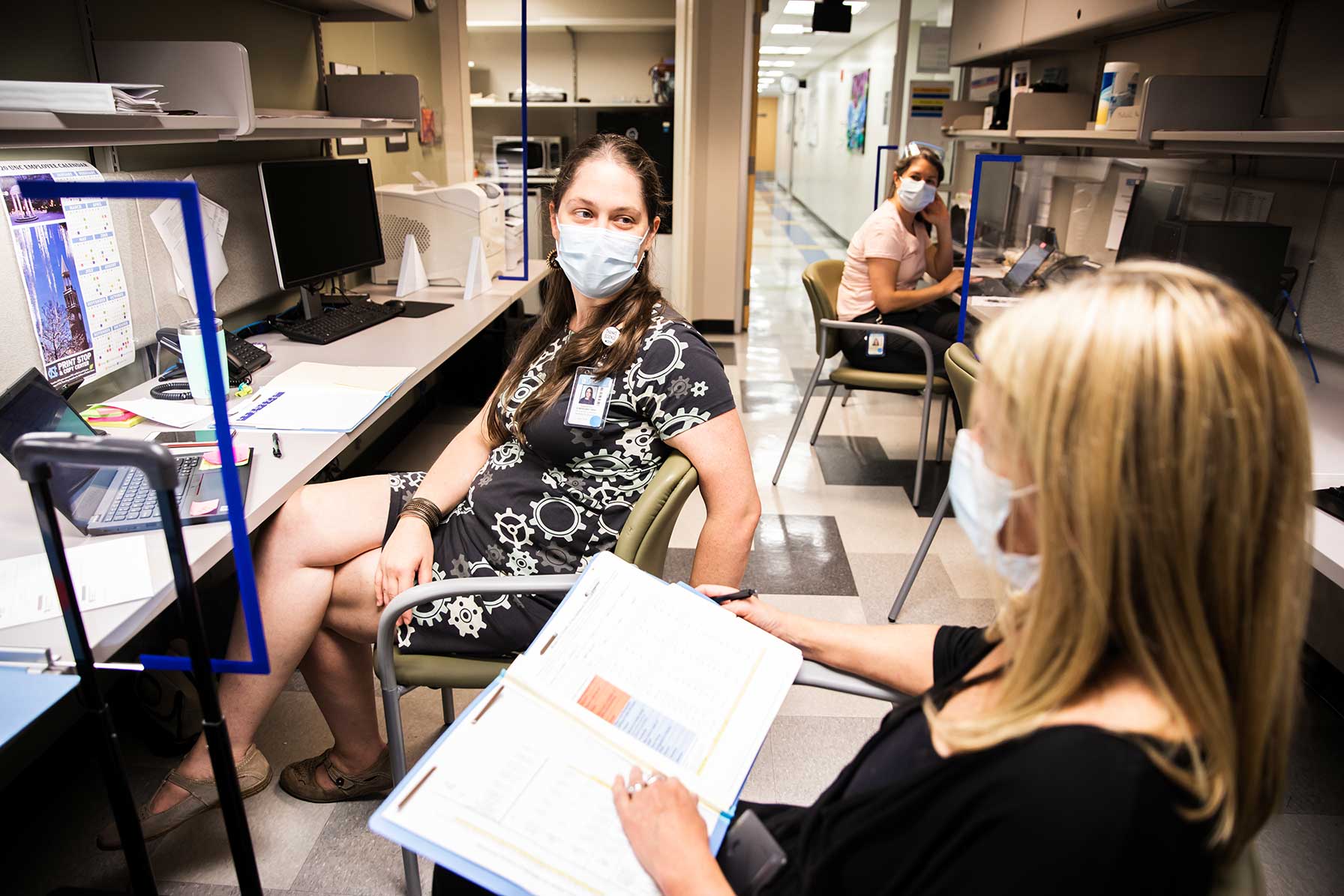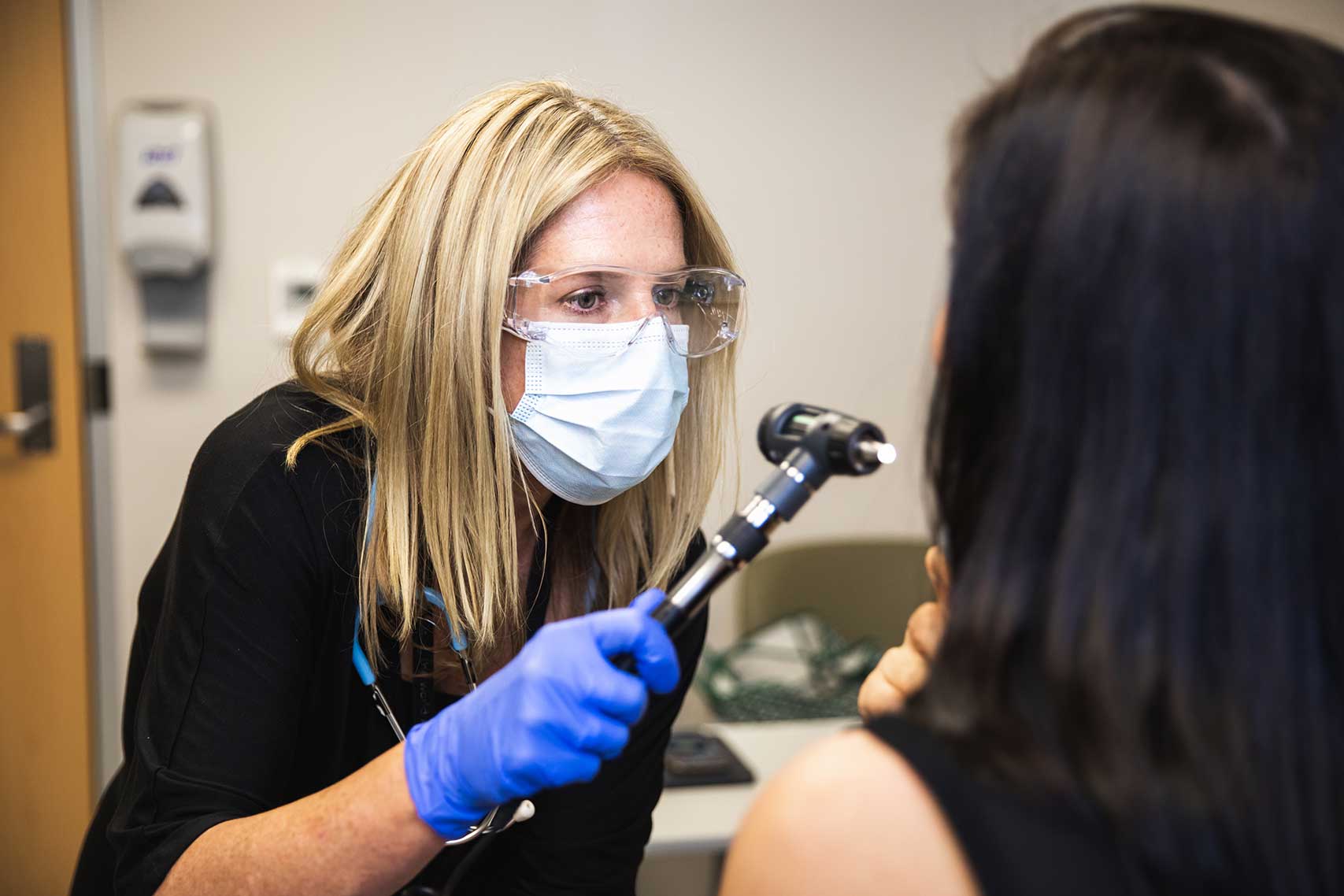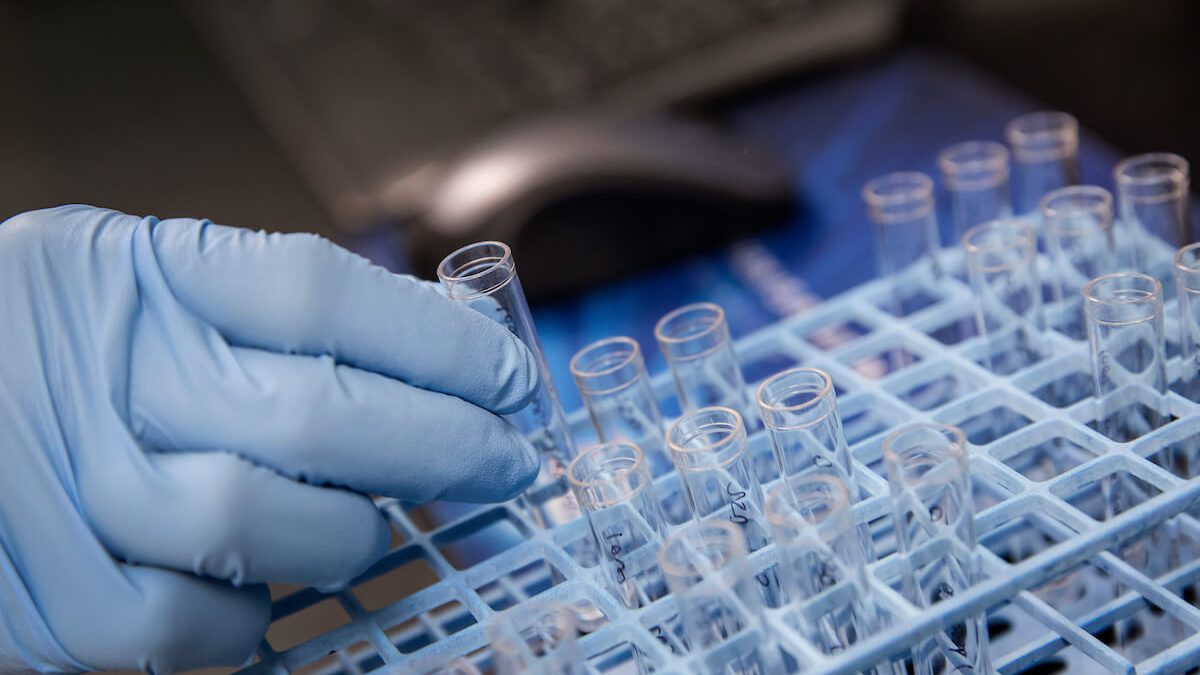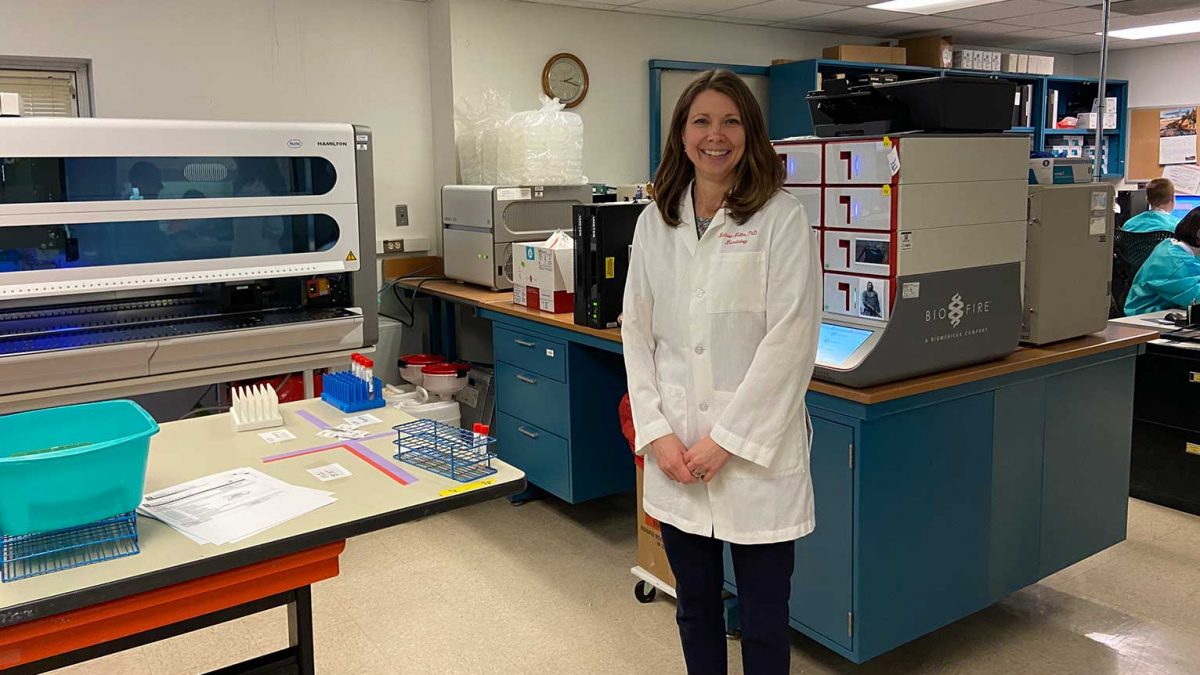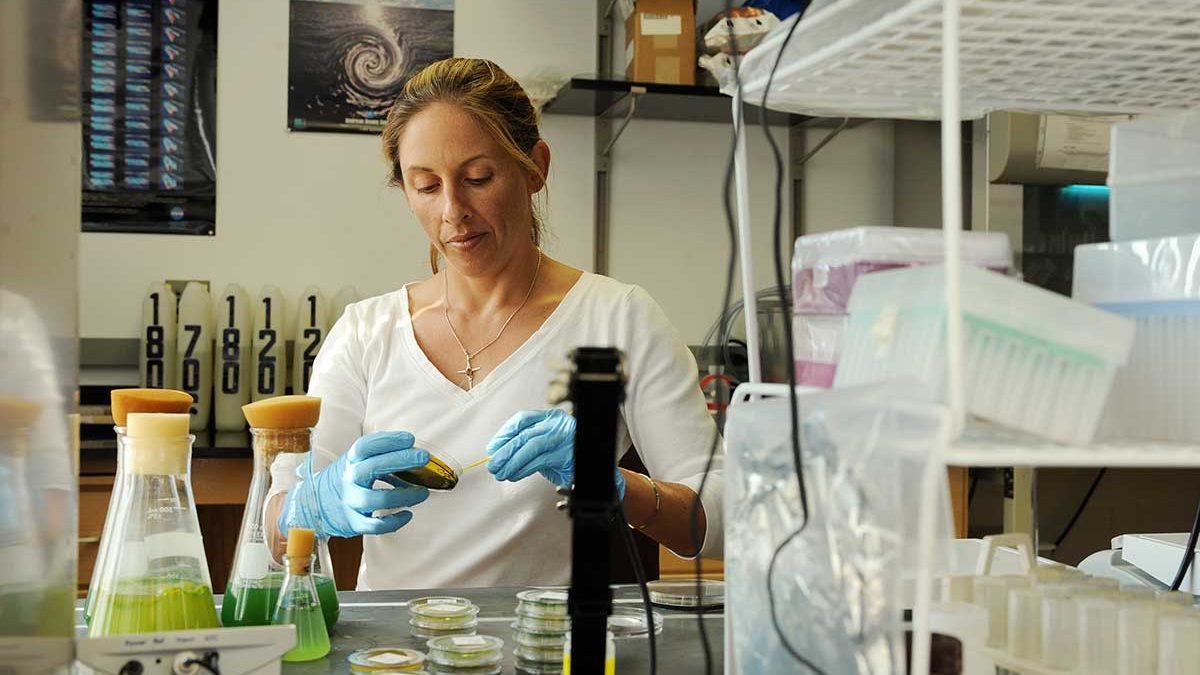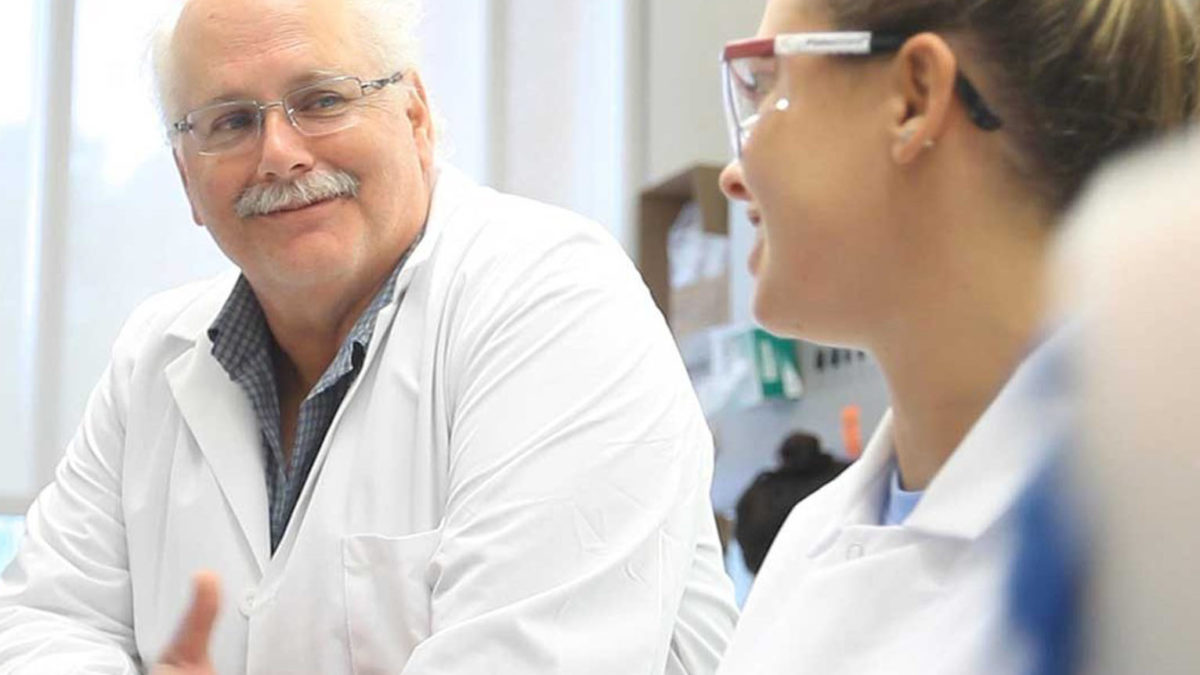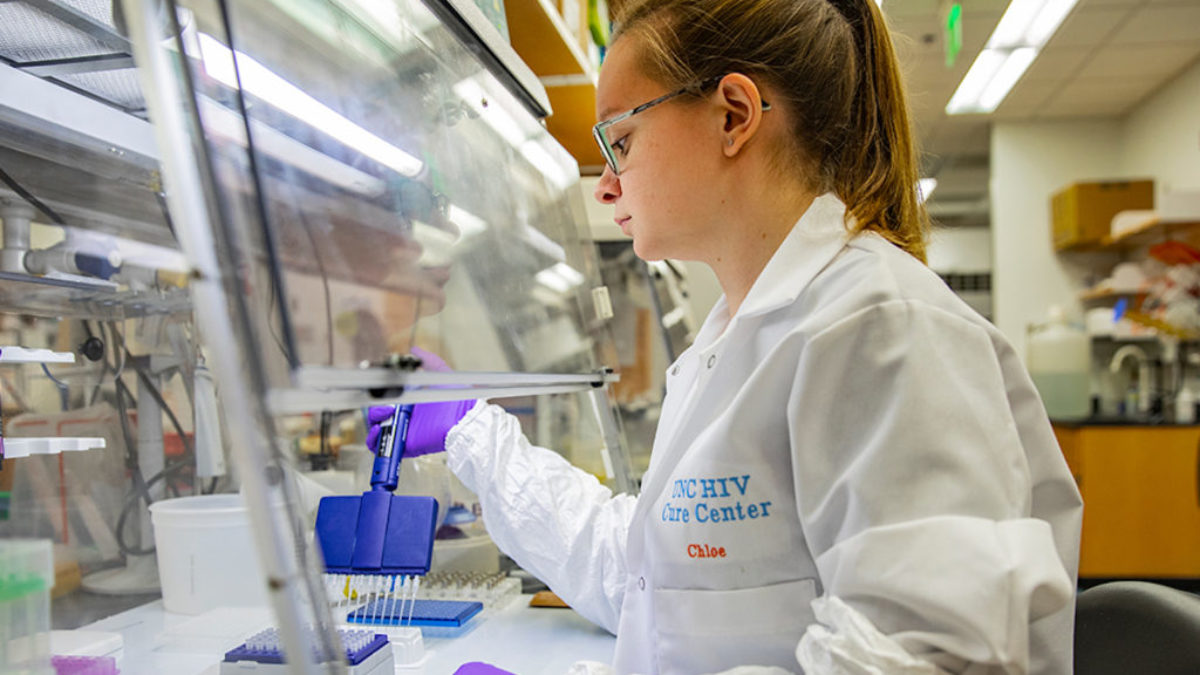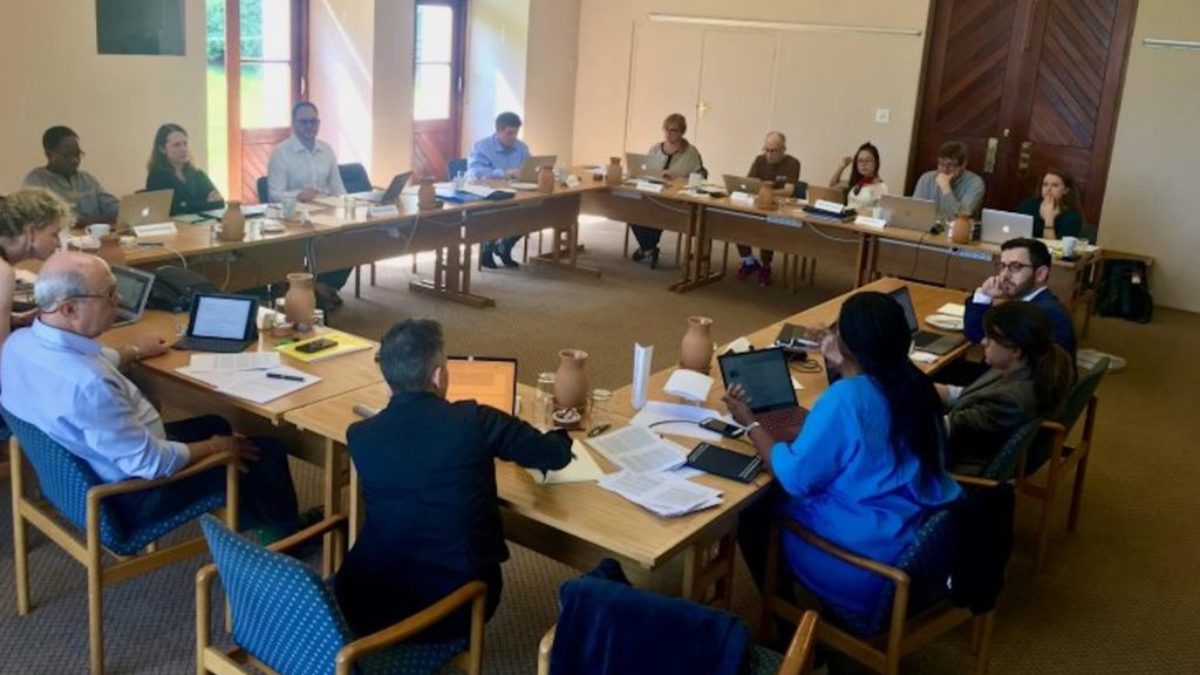I
t takes a convergence of disciplines, community participation and clinical excellence to test a vaccine under normal circumstances. But, these days, life is far from normal.
With COVID-19 deaths exceeding 200,000 in the U.S. alone, six months into the coronavirus pandemic millions of people are hoping — and waiting — for a safe and effective vaccine that will stop the virus in its tracks, creating immunity, preventing sickness and mitigating spread.
UNC Associate Professor Cindy Gay ’98 (M.D.), ’99 (M.P.H.) is part of a dedicated team of doctors, nurses, medical assistants, research specialists, pharmacists, data and project managers from different areas of expertise at Carolina, united in the common goal to find a vaccine for COVID-19. Committed to doing their part to save lives, they have prioritized this effort in order to run Carolina’s phase 3 clinical trial of the mRNA-1273 vaccine developed by pharmaceutical company Moderna.
As the primary investigator of the study, Gay’s motivation for pivoting from HIV research to a COVID-19 vaccine trial is the urgency of the moment.
“It is just so needed,” she said. “This is a global tragedy that has impacted our lives on so many levels. As a physician I hear about the stress and the fear, the uncertainty and the anxiety from my patients and colleagues.
“Being able to feel like I’m doing my part to help answer at least one question — Does this vaccine work? — feels like exactly the thing that I want to be doing.”
